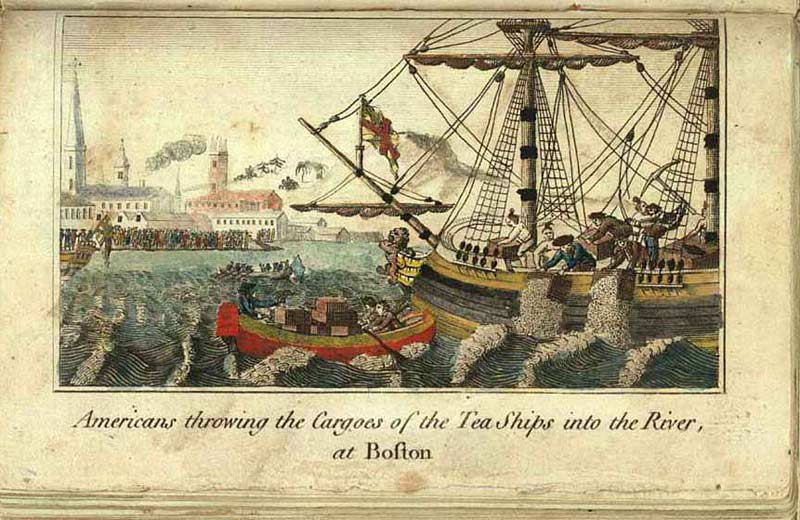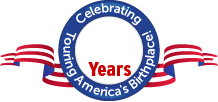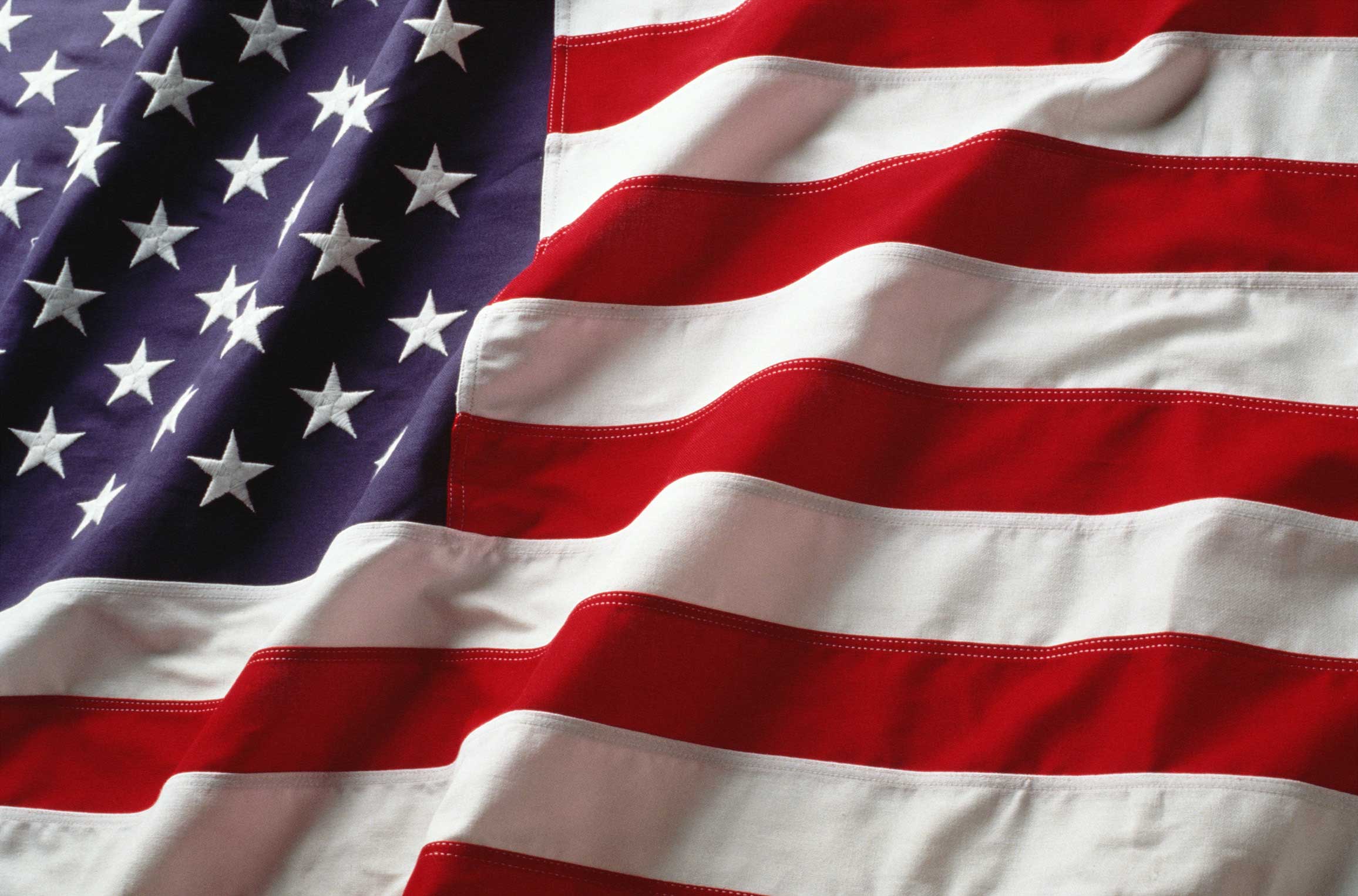The Boston Tea Party - This Day in History - December 16, 1773
Related Posts
- Buy Tickets for The Constitutional Walking Tour of Philadelphia – See 20+ Sites on a Primary Overview of Independence Park, including the Liberty Bell and Independence Hall
- Salute to America Flyover - Great Cities of the American Revolution
- Samuel Adams
- The First Continental Congress
- Carpenters' Hall
- Patrick Henry
On This Day in History, December 16, 1773, the Boston Tea Party Occurred

On December 16, 1773, the Boston Tea Party, a protest against taxation without representation took place in Boston, Massachusetts. The Boston Tea Party was the culmination of a dispute that had been brewing for years between the Colonists and the British Government. The Townshend Acts were passed by British Parliament in 1767 and 1768 and imposed numerous taxes, tariffs and regulations upon the American Colonies. Just as the Stamp Act was before them, the Townshend Acts were highly controversial within the American Colonies and led to widespread protests and boycotts of British goods. American Colonists believed that these taxes violated their rights as Englishmen, since they were being taxed by an authority that they had not consented to and that they had no representation within. This led to the slogan "No Taxation without Representation."
While the American Colonists had forced a repeal of the Stamp Act, the Townshend Acts were only partially repealed in 1770. A tax on tea remained in place, but Colonists largely got around it by smuggling Dutch tea and avoided paying the tax. This uneasy situation continued for three years until the Tea Act was passed in 1773. The aim of the Tea Act was to undercut the price of Dutch tea and small colonial tea operations. Parliament believed that this strategy would push smuggled tea off the market, forcing Colonists to purchase British tea and thus be forced into consenting to the tax upon the tea that was included within the Townshend Acts.
A common misconception is that the anger regarding the Tea Act was due to Colonists not wanting to pay more for their tea. However, the Tea Act lowered the price of British Tea so that it was cheaper than smuggled Dutch Tea and Colonial Imported Tea, thus providing American Colonists with an opportunity to purchase tea cheaper than they had prior to the Tea Act. The anger was due to the unjust nature of the tea tax that they were being forced to pay, not the monetary cost of the tax per se.
There were widespread protests spread across the American Colonies and multiple cities prevented the British Tea from being unloaded into their harbors. In Boston however, Royal Governor Thomas Hutchinson insisted that the tea shipment remain in Boston Harbor and was adamant that the tea would be unloaded. In Boston, protests against the Tea Act were led by the Sons of Liberty, a Boston based group led by Samuel Adams that advocated for the rights of American Colonists. Once it became clear that attempts to convince the ships carrying the tea to return to England would not be successful, plans to destroy the tea instead began to materialize.
While Samuel Adams is often credited for organizing and leading the Boston Tea Party, to this day, it is unclear to what extent Adams planned the Tea Party or whether or not he even participated. What is known, is that shortly after a meeting organized by Samuel Adams to discuss the issue of the Tea shipments, a large group of men boarded three ships in Boston's Harbor and within three hours had dumped all 342 crates of tea that were aboard the ships into the Boston Harbor. While Samuel Adams role in the planning of the Boston Tea Party is unknown, his involvement after the Boston Tea Party occurred is very clear. Adams strongly defended the Boston Tea Party, arguing it was a just defense of Colonists' rights, while working to publicize this act of defiance across the Colonies.
The Boston Tea Party resulted in the destruction of nearly £10,000 of British Tea, or the equivalent of nearly two million dollars worth of tea in today's money. When news traveled to England of the Boston Tea Party, Parliament was outraged and responded with the passage of a series of laws which Colonists dubbed the "Intolerable Acts." Designed to try and put an end to American Colonial rebellion with a harsh punishment, the Intolerable Acts only succeeded in further enraging American Colonists and turning a greater percentage of the Colonial population against England.
Shortly after the passage of the Intolerable Acts, Colonists from 12 of the 13 American Colonies gathered together in Philadelphia for an unprecedented meeting known as the First Continental Congress. The meeting took place in Carpenters' Hall, which is a stop on The Constitutional Walking Tour of Philadelphia. At the meeting, Colonists began to come together and unite for the first time. To that end, Patrick Henry of Virginia famously stated:
“The distinctions between Virginians, Pennsylvanians, New Yorkers, New Englanders are no more. I am not a Virginian but an American.”
Thus Patrick Henry and Philadelphia are credited with the birth of the "American identity".
Within a year, the American Revolution began, demonstrating how a Tea Party in Boston, led to an important meeting 300 miles to the South in Philadelphia, and soon afterwards, a revolution that would shock the world.
There are so many great historic sites along The Freedom Trail in Boston that help to tell the story of the American Revolution. In fact, the Freedom Trail served as a model for The Constitutional Walking Tour of Philadelphia.



